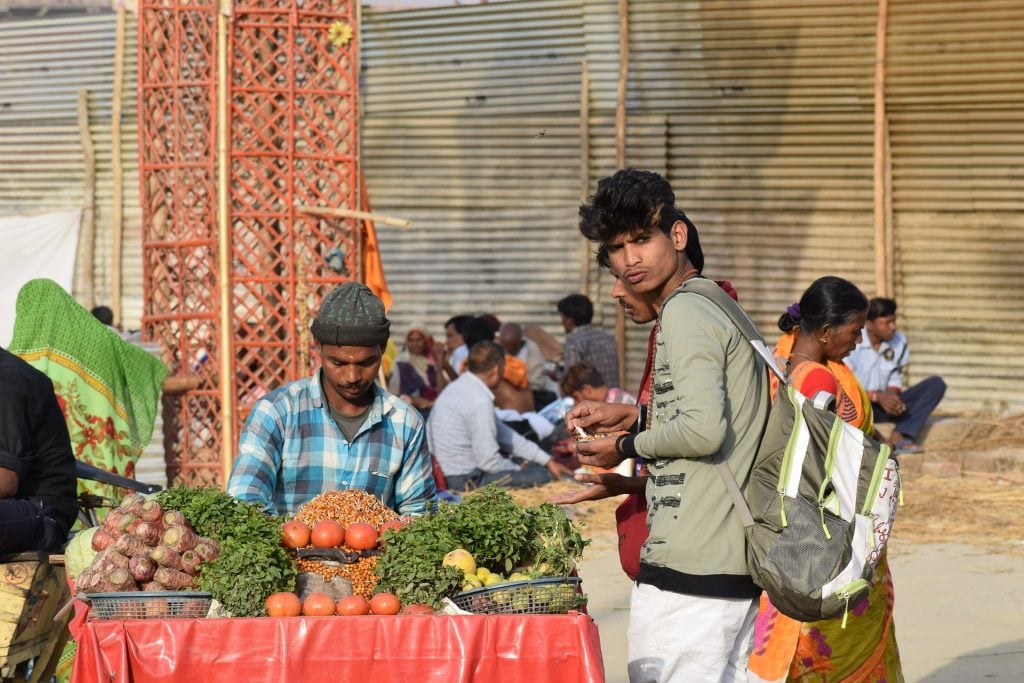Co-author: Madhavika Bajoria (Sight and Life) and Geetanjali Master (UNICEF India)
4 min read
India is still home to one-third of the stunted children in the world, and has the highest number of wasted children globally. Stunting impairs cognitive potential and productivity, and wasting, which implies extremely low weight-for-height, is a serious condition that threatens the child’s ability to survive and thrive.
One in two women and girls between 15 to 49 years old, and nearly 60% of children in the crucial age bracket of 6 to 23 months, are anaemic. Research has shown that 1% loss in adult height due to stunting reduces productivity by 1.4% and that eliminating anaemia can increase productivity by 5 to 17%.
With the disruption in food and nutrition services and supplies during this pandemic, the malnutrition problem has only been compounded. Apart from the suffering of individuals, malnutrition poses a serious threat to GDP, human capital potential, productivity and demographic dividend.
Here are some ways we can address this challenge and set India on the path to nutritional self-reliance.
1. Fostering Multi-stakeholder Partnerships
Stakeholder alignment and a long-term relationship among different partners can be very fruitful as they share risks and rewards, exchange skills, converge social, human and financial capital and technologies to enhance delivery on nutrition outcomes.
Multi-stakeholder partnerships across private and public sectors enable each other to set and meet a common nutrition agenda. The inherent quality of multi-stakeholder partnerships lies in the fact that the governance becomes more accountable and responsive to people’s needs when it adopts qualities from the business sector for holistic development.
2. Mobilizing Public-Private Engagement Platforms
To facilitate multi-stakeholder partnerships, we need more platforms like IMPAct4Nutrition (I4N), which can create a business ecosystem that is both profitable and socially responsible. Today, I4N orients businesses and industries towards nutritional self-reliance and works with them to find solutions to calorie, protein and micronutrient inadequacies in the workforce.
I4N has developed tools to enhance workforce nutrition, so businesses can build a well-nourished workforce, which is essential for increasing growth and productivity. With its inherent credibility and strength that comes from the founding partners, UNICEF, Tata Trusts and Sight and Life, I4N can revitalise the collective power of the industries for a public interest agenda.
I4N has created an opportunity for the socially responsible business sector to be part of a large social movement that will positively impact the nutritional and health status of India. Over 120 partners from the private sector, all across India, have signed up with the platform to pledge commitment to building a healthier workforce and business ecosystem, and enhancing the nutrition status of people in their communities and catchment areas.
3. Actioning the ‘ACE’ card
The ACE card of a company – its assets, corporate social responsibility (CSR) funds, and employee engagement on nutrition messaging – is a key pillar towards meeting nutrition goals.
Companies can use the ACE card to encourage action and behaviour change among employees and communities. I4N uses the ACE card as one of its key engagement areas with pledged corporate partners, and guides companies on how to leverage the company’s assets such as infrastructure, networks and expertise to promote nutrition sensitivity. To educate employees on the various aspects of nutrition, it encourages pledged partners to invest CSR funds into nutrition sensitive projects, and integrate nutrition into existing allied sector programmes such as WASH, Education, Livelihood and Health.
Once they take a pledge with I4N, these companies work as catalysts to spread nutrition literacy among the employees, customers, suppliers and their families. Good nutrition becomes a household name and way of life.
TOWARDS NUTRITIONAL SELF-RELIANCE
I4N has been working with its pledged partners to create a special focus on workplace nutrition in India. One of our partners, TATA Power Delhi Distribution Limited (TPDDL), under its Sanjivani (health) pillar of CSR activities, has undertaken a long-term association with the I4N secretariat to carry out planned employee engagement activities under the workplace nutrition vertical. Any learning by employees is naturally cascaded to their families and the community.
Using I4N proprietary resources, TPDDL conducted health and nutrition awareness sessions through a cooking demonstration under the guidance of Chef Sadaf Hussain and reached out to approximately 100,000 people. Additionally, Sandesh, a weekly newsletter, was launched for internal circulation and distribution to their consumers. Nutri-sensitive information is introduced in a planned manner across the themes of the POSHAN Abhiyaan and this has reached out to around 3000 employees and a 500,000-strong consumer base.
Nutrition during Covid becomes even more important as a robust immunity is one of the few defenses against the disease. I4N adapted to the pandemic and conducted virtual activities once the pandemic hit us. With regular digital learning sessions for employees, I4N and TPDDL are working towards making their ecosystem of employees, families, customers and vendors nutritionally self-reliant.


















